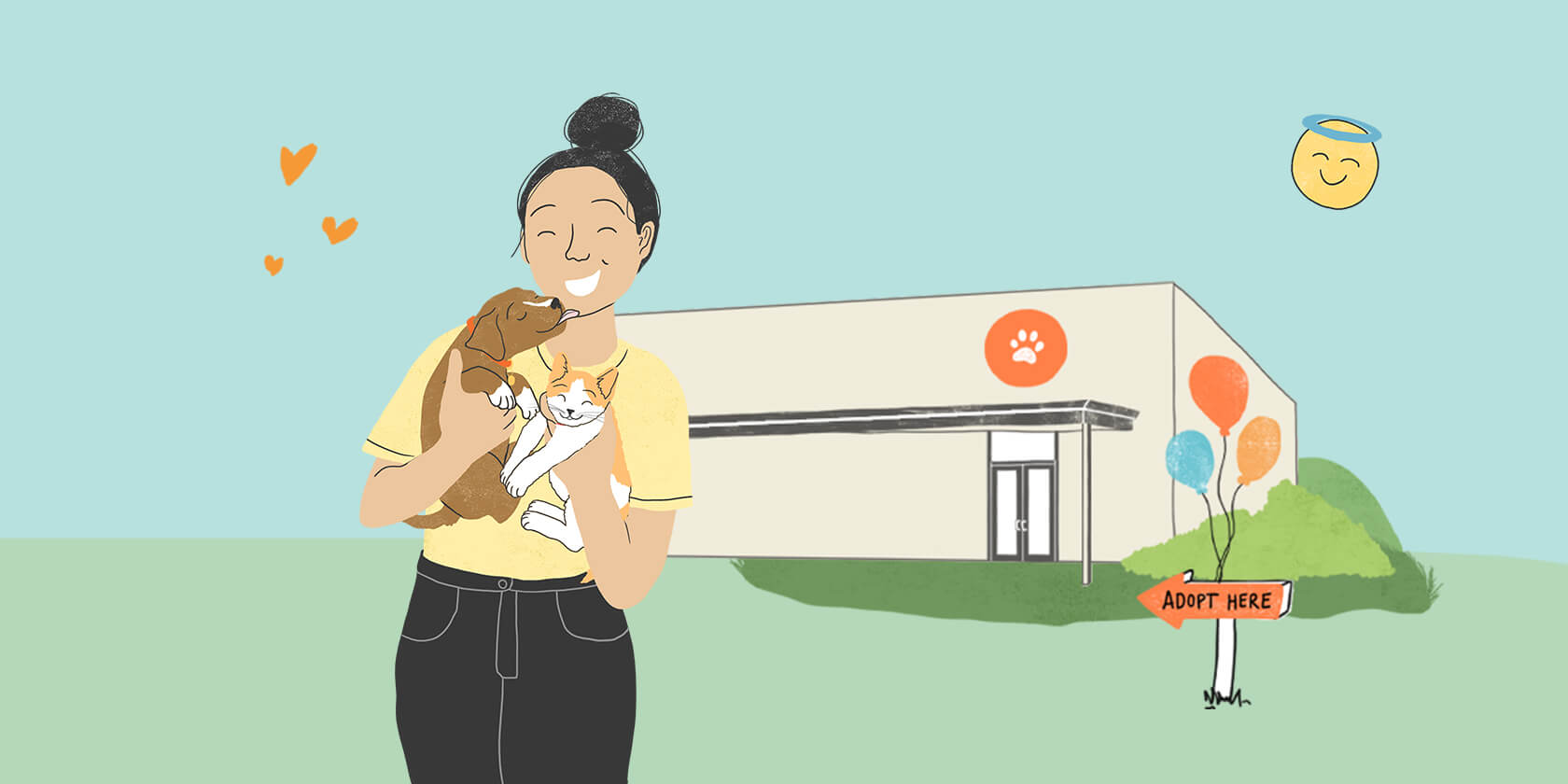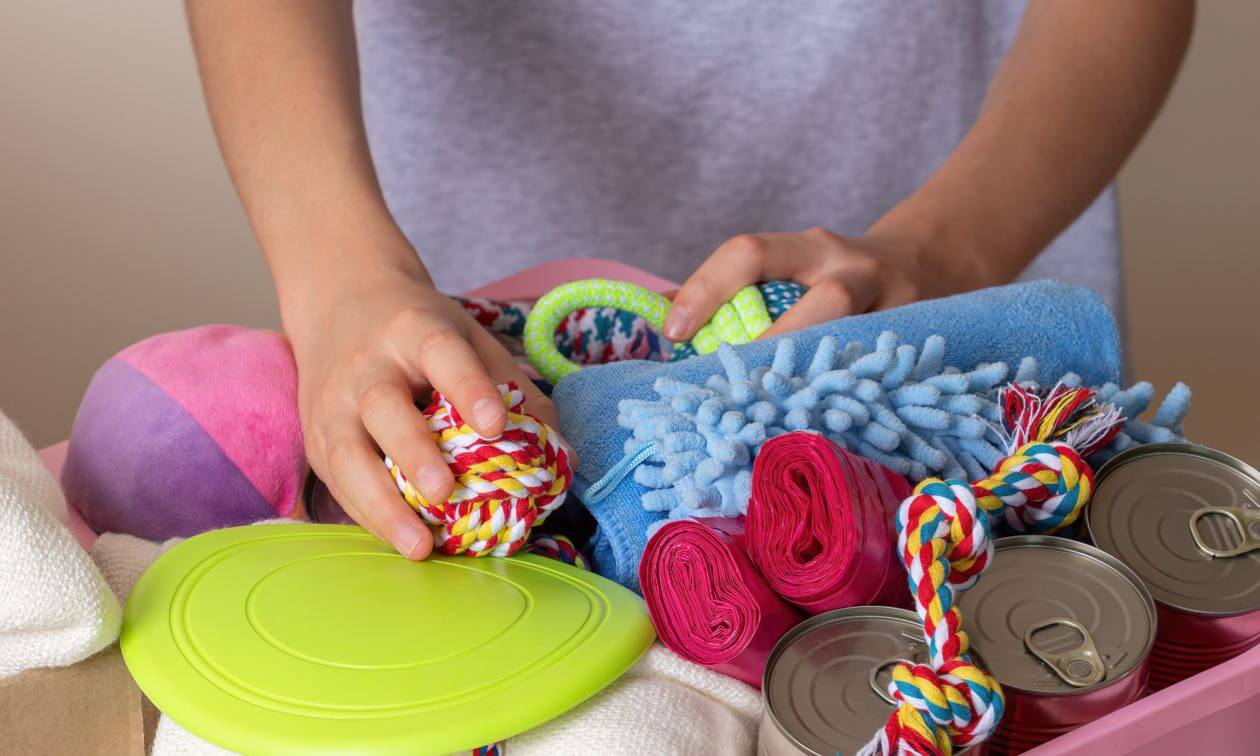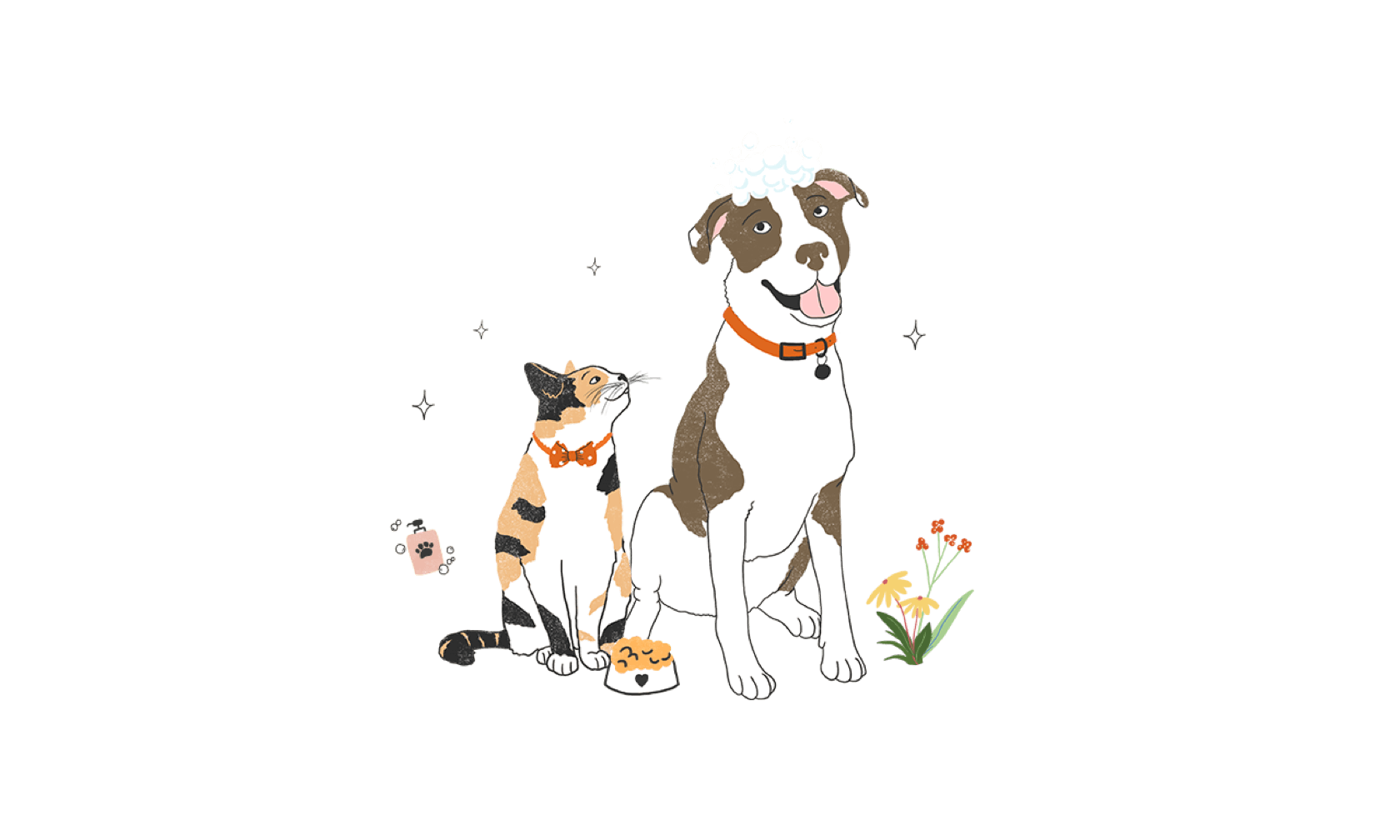There are animal shelters and rescue organizations in just about every city. They’re doing amazing work and trying to stretch their dollars and supplies as far as they possibly can. Thinking you’d like to help them out? Maybe volunteering isn’t an option right now and monetary donations aren’t feasible. There’s another way you can give to your local shelters that’s just as impactful and doesn’t cost a thing — donating items from your home.

What Kinds of Household Items Can You Donate to Animal Shelters?
Shelters may have different guidelines for donations depending on what they need, what they have regular access to, available storage space, etc. Check their websites for specifics. Chances are your area shelters are using many of the same items for their animals that you use for your dog or cat. Even some of your “people” items may come in handy. The key is to look for things that can be washed and/or disinfected — not just as they go from your home to their facility, but also after each use moving forward.
How Will A Shelter Use My Donated Household Items?
A lot is happening in the shelter environment. Housing, feeding, medical care, play and enrichment, training, cleaning, and more. They’re using all the necessary supplies in large quantities and doing a lot of laundry.
Soft goods like towels and blankets can be used for cleaning, bedding, and making dogs and cats more comfortable during things like physical exams.
Pet beds are great for the animals if the whole bed can be run through the washing machine.
Washable toys that can either be laundered or wiped down with a disinfectant will go to good use keeping the dogs and cats active and entertained. Sometimes a favorite toy even goes with them to their forever home when they’re adopted.
A lot goes into storing, preparing, and feeding all those furballs. Nonporous feeding dishes, mixing bowls, storage containers, and measuring cups can help make the process more manageable.
Items from Your Home That You Can Donate to An Animal Shelter
Soft Goods:
- Towels and washcloths
- Blankets and sheets
- Pet beds that can be laundered
- Extra fabric (for bedding and making toys)
- Heating pads or heated pet beds
Toys, Training, and Enrichment Items:
- Soft toys that can be laundered
- Non-porous toys that can be sanitized
- Food puzzles and slow feeders
- Wand toys
- Clickers for training
- Agility course/training props
- Unopened catnip
Grooming and Care:
- Unopened pet shampoo
- Nail trimmers
- Hair trimmers
- Brushes and combs
- Hairdryers
Dishes:
- Food and water bowls (not plastic)
- Mixing bowls
- Food-grade storage containers
- Measuring cups
- Baby bottles
Potty Supplies:
- Litter boxes (if plastic, with few to no scratches where bacteria can hide)
- Litter
- Pee pads
- Poop bags
Cleaning Supplies:
- Unopened cleaning products like laundry detergent, bleach, soap, and enzymatic cleaners
- Buckets
- Mops and brooms
- Rags
- Sponges and scrub brushes
Paper Supplies:
- Paper towels
- Newspaper or shredded paper for bedding
Food (All Unopened):
- Bags or cans of cat and dog food
- Treats and chews
- Puppy or kitten formula
- Bags of rice
- Baby food (pet-safe with no nuts, garlic, onion, or other toxic ingredients)
- Chicken broth (no onion or garlic, low sodium)
- Clear Pedialyte
Setup, Housing, and Restraint Gear:
- Carriers
- Crates, kennels, and playpens
- Pet gates
- Collars
- Harnesses, leashes, and leads
Miscellaneous Items:
- Zip-top bags
- Zip ties
- Plastic shopping bags and trash bags
- Unopened medical gauze
- Cardboard boxes
Of course, monetary donations and items like cars that can be auctioned are often welcome as well! They can also use gift cards you may have received but never cashed in.
What Not to Donate to Animal Shelters
Generally, it’s difficult for a shelter to accept medication or anything edible that has been opened or is past its expiration date because they can’t confirm purity, safety, or efficacy. The same goes for cleaning products or liquids that could be mixed with other products or mislabeled. Items that can’t be washed or disinfected are also challenging due to sanitation and safety guidelines. They’re often dealing with animals who are injured, ill, have parasites, or are awaiting the all-clear through test results. To keep the other animals safe and healthy, they must be able to sanitize just about everything. It’s best to check with your local shelter though just in case they can take any of these items.
ZPC-01713R1



